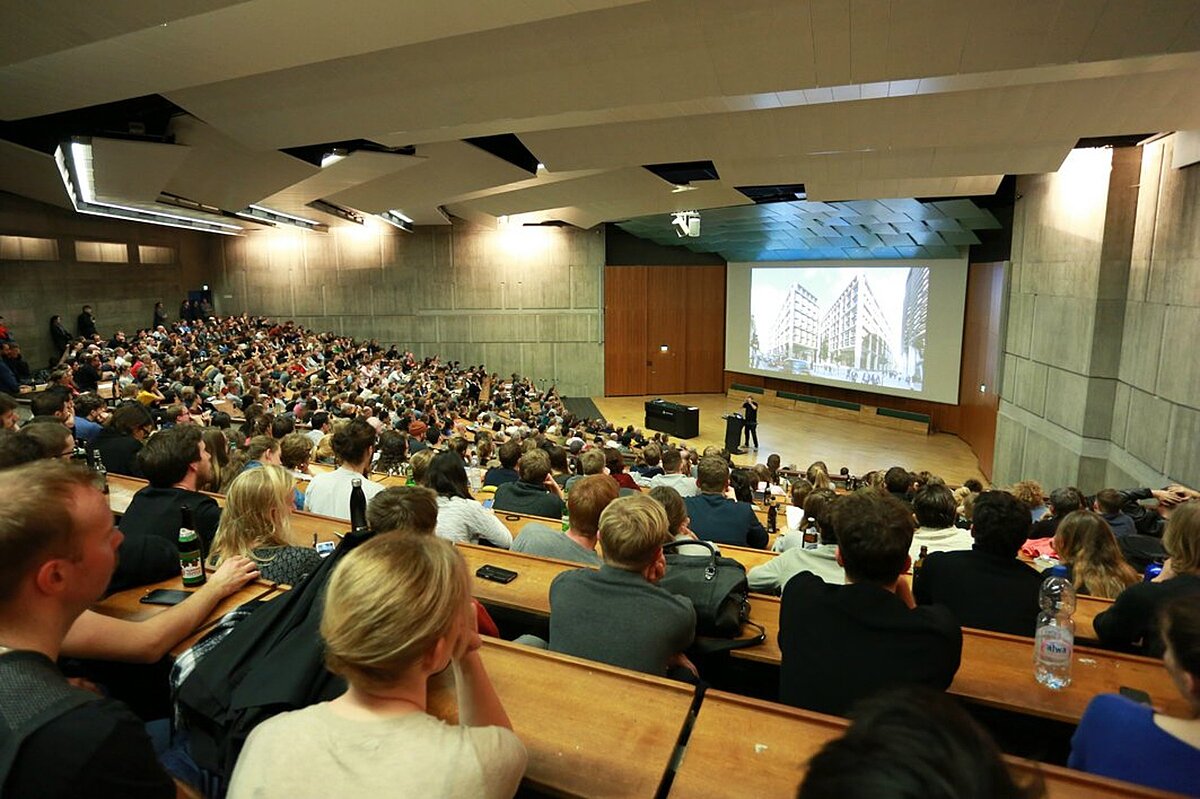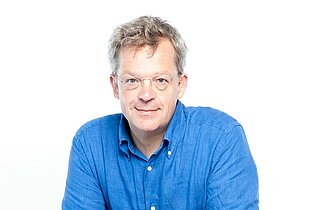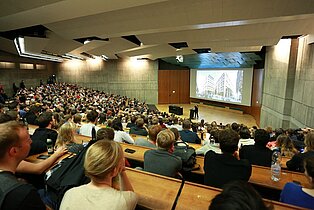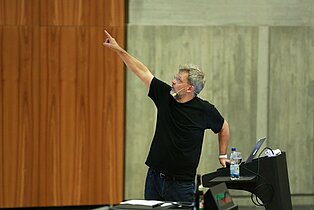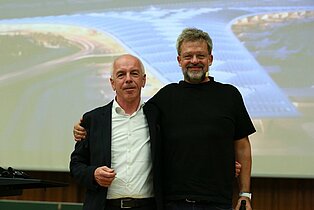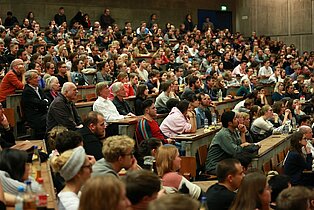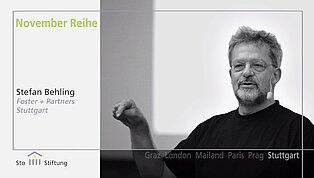Review | Stefan Behling at the November Reihe 2018 in Stuttgart
“Good architecture emerges from the remarkably chaotic battle between different specialist disciplines”.
In his lecture for the 13th edition of the November Talks, Stefan Behling returned to his old alma mater. His former colleague Prof. Peter Cheret welcomed him with warmth before a full house in the basement lecture theatre at the University of Stuttgart. Logically, one or both of them was sure to look back over that time they shared at the Institute. From 1995 to 2015, Stefan Behling was Director of the Institut für Baukonstruktion, the Building & Construction Institute, at the University of Stuttgart, eventually relinquishing his academic post to concentrate all of his attention on his work with Foster + Partners in London where he has been a partner since 2016.
When Stefan Behling was a student, if he had been asked what future he imagined for himself in his wildest dreams, he would have wished for precisely what he is doing at Foster today. Which is to work within a team of architects on important major projects, and to negotiate interdisciplinary topics with a large number of specialists. A tussle fought for the well-being of architecture and to exploit to the full the great potential that is generally grouped under the heading of innovation.
As a passionate defender of sustainable, integrated design, Behling invariably, whenever he airs his views in public, emphasises the importance of innovation for architecture. The scientific dialectic in which he engages with frontier areas and new fields of architecture, new materials, applications and construction principles serves as the foundation for his successful projects worldwide.
In his lecture, this architect presented projects from the last few years. Nor did he fail to allude to a few success stories of former Stuttgart graduates. By doing this, Behling was sending a clear message of ‘Everything is possible’ to the students.
Maggie’s Center in Manchester is a small and simple building with a most unusual supporting structure. A place of refuge where people suffering from cancer can find emotional and practical support. The draft design was founded upon the conviction that humankind and the natural world belong together. The building blurs the distinction between interior and exterior.
Just recently, Bloomberg’s new European head office in London was awarded the UK’s Stirling Prize for outstanding architecture. The special feature of this project is that, from the 6th floor, all areas of the building can be reached via a ramp with complex geometry. This ramp is clad in bronze and forms three intersecting ellipses that forge exciting visual connections into the different storeys and promote interaction.
At Apple Park, the head office of Apple in the Californian town of Cupertino, landscape architecture had a big role to play. The architects were driven by the question of how innovation can be inspired by architecture. The answer to that question, in this case, was supplied by nature; over 9000 trees were planted for this project. Gigantic panoramic panes of glass open up the view to the outside world. Sustainability is also a key factor here, as the building operates entirely on renewable forms of energy.
As a student, Stefan Behling could never have imagined himself building business premises. A view he has revised, and he is now the architect responsible for Apple Stores all over the world. Today, Behling is convinced that something needs to be done to make a town or city come alive and he calls upon people to view urbanity as a positive challenge.
This successful opening to the November Talks at the University of Stuttgart closed with an announcement by Prof. Peter Cheret that he would be retiring at the end of the 2019 summer semester. Within the architecture faculty there was great consensus over the notion that this series of lectures, sponsored by the Sto Foundation, should be adopted as an integral part of the faculty. In future, Prof. Markus Allmann is to spearhead these events in Stuttgart, the next of which will be held in 2019.


